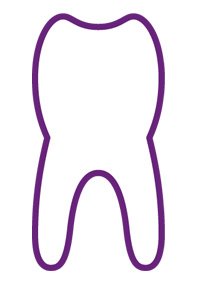Each year, thousands of adults and children are treated for dental injuries that could have been prevented or minimised by simply wearing a mouthguard.
Who needs a mouthguard?
The Australian Dental Association strongly recommends the use of a mouthguard in any sport or activity where collision or contact is likely, during both games and training. Dental injuries are often difficult to treat and can involve a lifetime of expense.
It’s always best to ‘play it safe’ and wear a mouthguard to protect your teeth. Anyone who plays a sport or undertakes an activity where collision or contact to the face is a legitimate risk should wear a mouthguard. Sports such as rugby union and league, AFL, hockey and boxing are ‘no brainers’ because intentional collision and contact are a part of the game.
However, it is sports where accidental collision occurs that are often responsible for dental trauma, such as cricket, basketball, netball, touch football, skateboarding, and soccer. These sports are considered ‘non-contact’ and yet they also carry risk of accidental collision and contribute to the thousands of adults and children who are treated for dental trauma each year.
The damage.
Dental trauma from sporting injury can include damage to the tooth nerve, fractured, cracked or knocked-out teeth, a broken jaw, damage to the tongue and cut lips.
Unfortunately, a single case of dental trauma can lead to a lifetime of dental treatment in order to maintain the strength and health of the damaged tooth/teeth. Repair work does not last forever, so a damaged tooth will often become a lifelong problem. Prevention is always better than the cure, so play it safe and wear a mouthguard.
How a mouthguard works.
A custom-fitted mouthguard works by absorbing and spreading the impact of the damaging blow.
A mouthguard that is custom-fitted by your dentist is far superior to an over-the-counter mouthguard because it’s specially designed to fit the exact contours of your mouth, is resilient, balances your bite and allows speech and normal breathing. If properly used, stored, and checked by your dentist every year, a custom-fitted mouthguard should last several seasons. You should consider it a mandatory part of your sporting equipment, no matter your age or experience. In contrast, self-fitted, over-the-counter mouthguards, which include what are commonly known as boil-and-bite mouthguards, should not be used. They do not protect the teeth, are loosely fitted, impede breathing and speaking, and can even wedge in the back of the throat at impact which could be life threatening.
The custom-fitted mouthguard – what to expect.
Your dentist will take an impression and create a plaster model of your teeth.
This model will be used to accurately assess your mouth and design a uniquely fitted mouthguard. A custom- fitted mouthguard may need to be replaced if it has been damaged, or if you have new teeth since your mouthguard was made. Always make sure you bring your mouthguard to be assessed by your dentist when you come for your regular check-ups.


